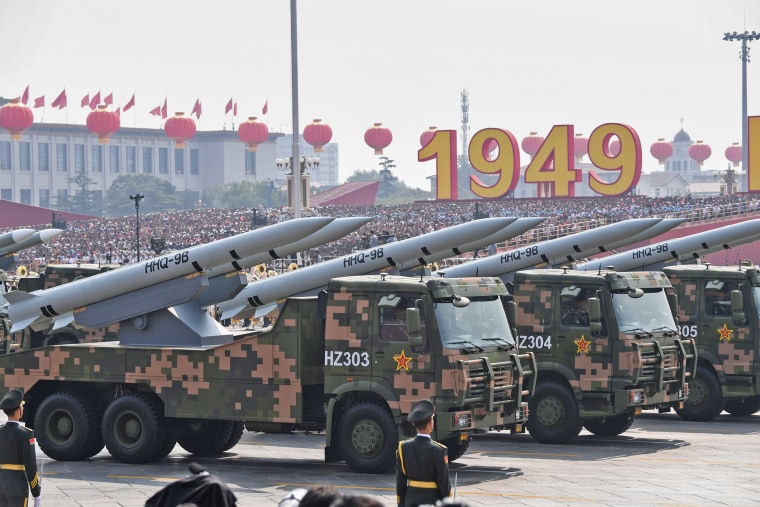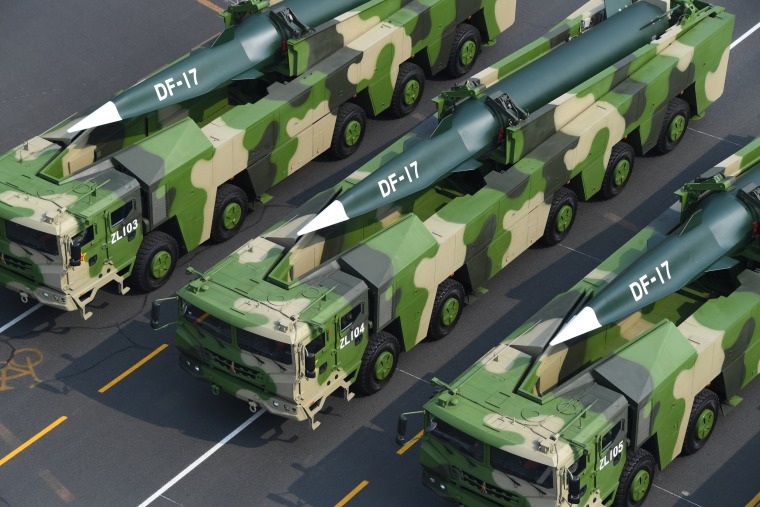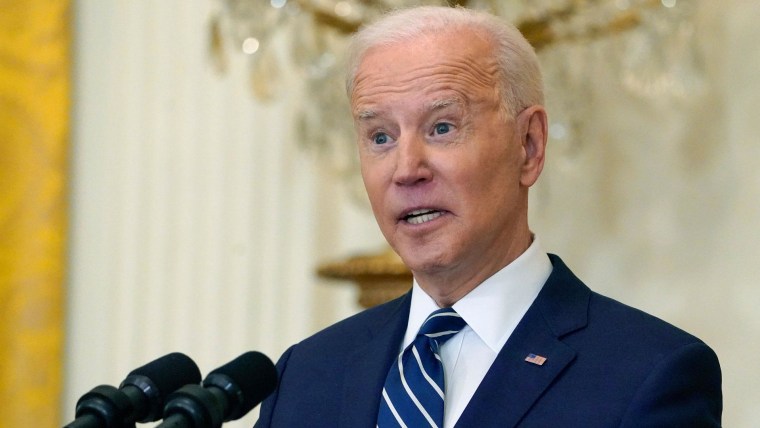There is no doubt the US will go to war to protect Taiwan
First, Glaser believes if United States abandons Taiwan, Japan and South Korea would “no doubt understand” that Taiwan was less important than them and the risk was very high. “Letting go” of Taiwan, he said, “should suggest little, if anything, about the strength of Washington’s commitment to Tokyo and Seoul.”
How could that possibly be considered the truth? Abandoning a 70-year commitment to Taiwan’s continued freedom in the face of risk the author himself deems “small” could not possibly be viewed positively by Tokyo and Seoul. Instead, it would beg the question of Washington’s price for its freedom as well. Japan’s Senkaku Islands, vigorously disputed by China, would certainly be next on the menu. It is ludicrous to postulate that abandoning Taiwan would not raise fears of abandonment among Washington’s other Asian allies. It could just as easily bring down the entire hub-and-spoke system of alliances that U.S. policy relies on in the region.
Glaser assures us there is little cause for concern if China takes Taiwan. Chinese ballistic missile submarines, despite enjoying clear access to the Pacific Ocean, would pose no new threat because the U.S. nuclear deterrent would remain effective. Its other conventional forces and attack submarines would pose no meaningfully increased threat because the United States could just deploy anti-submarine warfare assets—such as its own submarines, maritime patrol aircraft, and surveillance ships—to “reduce the ability of Chinese submarines to leave Taiwan.”
That assertion is not a credible one. Some of Glaser’s assertions about defending Japan are true under the status quo, as Thomas Shugart of the Center for a New American Security noted, but would quickly ring hollow once the People’s Liberation Army (PLA) set up shop in Taiwan. Stretching from the Korean Peninsula through the Japanese islands and Taiwan and ending in Southeast Asia, the first island chain is a key element in defense considerations for U.S. allies and U.S. forces in the Pacific Ocean. A quick glance at a map should make clear that gifting Taiwan to China breaks that chain and places China in control of one side of the Bashi Channel, a critical strategic chokepoint for PLA Navy forces to access the Philippine Sea from their current bases.
If China controls Taiwan, it controls the maritime space surrounding Taiwan as well as existing Taiwanese military infrastructure. That makes it, in fact, much easier for Chinese submarines to leave Taiwan, and the PLA Air Force would naturally move into Taiwan’s existing air bases. The idea that a new barrier could easily be thrown up is fantasy.
Simple math says U.S. forces, presumably the Seventh Fleet, could not maintain sufficient assets of the type required to make that happen. And in the event of a war, they would be crushed by the same A2/AD that Glaser threatens at the outset—only now those missiles and aircraft would be based in Taiwan.
Not to worry though, Glaser tells us, because once the United States is no longer committed to protecting Taiwan, the odds of war with China will drop! Peace in our time, as it were. But the assumption that China’s territorial ambitions would be sated by offering up Taipei as a sacrificial lamb is not only fictitious but counterfactual. Beijing’s raft of territorial and boundary disputes elsewhere—India, Nepal, Bhutan, Mongolia, Japan, South Korea, Vietnam, Malaysia, Indonesia and the Philippines—would look only too easy to resolve by coercive means once Washington proves willing place Taiwan on the table. Chinese President Xi Jinping’s nationalist regime would be emboldened, not satisfied, by conceding Taiwan. And given that occupation of Taiwan would put Japan’s southernmost islands within 140 miles of the People’s Liberation Army, it’s not difficult to see where Beijing might consider pushing next. Shugart even points out that U.S. forces seriously considered using Taiwan as the jumping off point for seizing the Ryukyu Islands during World War II before ultimately choosing the route through Luzon in the Philippines.
And while it may be true that Japan and South Korea have larger economies, Taiwan is no slouch, coming in as the United States’ 10th largest trading partner. More significant than that, however, is its dominant position as a world leader in semiconductor production. Although U.S. President Joe Biden has pledged to bring some semiconductor production back to the United States, for now, the world depends on Taiwan’s domestic industry.
Should China control that production, it would control a major lever of the world economy and gain a considerable advantage for its own electronic manufacturing giants. Given Beijing’s penchant for using economic leverage to punish countries, highlighted by its 2010 cutoff of rare earth metals and ongoing spat with Australia, it seems logical to assume semiconductor production would be weaponized by the Chinese Communist Party.
The South China Sea figures even lower than Taiwan in Glaser’s estimation, and his speculations are even less rooted in fact. The United States has made “vague claims” to protect U.S.-allied Philippines’ maritime claims and U.S. Navy “dominance” in the Indian Ocean. There is no uncertainty in assertions made by former U.S. President Donald Trump and Biden’s administrations as to U.S. commitments to the Philippines, and the U.S. Navy has little persistent presence in the Indian Ocean—though rumors persist it might still create a naval fleet focused on the region. Increasingly robust signs of cooperation from the Quadrilateral Security Dialogue might lend some credence to the idea, but although the grouping may continue to grow and mature, it is certainly not a formal military alliance.
Glaser suggests a “grand bargain” should have been struck before China’s positions calcified—that the United States should have ended its commitment to Taiwan in exchange for China’s agreement to “resolve” its South China Sea disputes. This proposal comes without any evidence the possibility existed aside from a link to the author’s own paper on the same subject, published in 2015. It’s assertions were certainly questionable at the time and have aged poorly in the interim. Glaser has been pushing for a U.S. reversal on Taiwan since at least 2011 by seemingly just repackaging the argument without making it more persuasive. It also comes with the idea that Beijing’s promises can be trusted, which rings particularly hollow after China broke treaties to gut Hong Kong’s liberties. But since that mythical ship has already sailed, all that’s left now is for the United States to unilaterally divest itself of its commitments to Taiwan.
Glaser offers two options: appeasement, presented to mean a total withdrawal from Asia, and retrenchment, ending the United States’ commitment to Taiwan and minimizing opposition to Beijing’s “assertive policies simply to avoid conflict.” But Glaser intends for the U.S. government to continue to make clear that China’s use of force to conquer Taiwan would violate international norms. The power of international norms is offered as an alternative deterrent against a regime currently committing crimes against humanity in Xinjiang.
Apart from the logical flaws in his argument, Glaser seems untroubled by condemning 23 million free people to living beneath Beijing’s boot—to say nothing of the death and destruction that would be rained on Taiwan in an invasion. Somewhere along the line, some within the realist school appear to have lost their way. Too often, realism seems to just mean risk aversion and ends in calls for appeasement.
It is entirely appropriate for the U.S. government as well as the U.S. body politic to discuss and debate the future of the United States’ relationship with Taiwan, but it demands more than flimsy and error-ridden arguments when millions of lives lie in the balance. The risk of war is a terrible one, and Glaser is right to hope to avoid it, but retrenchment in the face of Chinese revisionism is not a convincing solution to the problem.
The same policies playing out in Xinjiang and Hong Kong—brutal repression, crushing dissent, reeducation camps—would be on full display in Taiwan, but the fact the United States’ long-term partners would be violently subjugated to a totalitarian government seems to be wholly outside the frame of Glaser’s concern. Realism is not an excuse for callousness. Imperfect as it may be, the United States presents itself as a state that stands for certain values, and leaving a democratic government and a free nation to be ground to dust while it looks on is not among them.
China's growing firepower casts doubt on whether U.S. could defend Taiwan
In war games, China often wins, and U.S. warships and aircraft are kept at bay.

In simulated combat in which China attempts to invade Taiwan, the results are sobering and the United States often loses, said David Ochmanek, a former senior Defense Department official who helps run war games for the Pentagon at the RAND Corp. think tank.
In tabletop exercises with America as the "blue team" facing off against a "red team" resembling China, Taiwan's air force is wiped out within minutes, U.S. air bases across the Pacific come under attack, and American warships and aircraft are held at bay by the long reach of China's vast missile arsenal, he said.
"Even when the blue teams in our simulations and war games intervened in a determined way, they don't always succeed in defeating the invasion," Ochmanek said.
A war over Taiwan remains a worst-case scenario that officials say is not imminent. But China's growing military prowess, coupled with its aggressive rhetoric, is turning Taiwan into a potential flashpoint between Beijing and Washington — and a test case for how the U.S. will confront China's superpower ambitions.
The outgoing head of the U.S. military's Indo-Pacific Command, Adm. Philip Davidson, warned senators this month that the U.S. is losing its military edge over China, and that Beijing could decide to try to seize control of Taiwan by force by 2027.
"Taiwan is clearly one of their ambitions. ... And I think the threat is manifest during this decade, in fact, in the next six years."
U.S. intelligence analysts have warned for more than a decade that China's military strength was progressing at a dramatic pace, and that America's superiority was evaporating in the Pacific, Defense officials told NBC News. Only now has the message finally hit home, with simulated battles driving home the point.
"You bring in lieutenant colonels and commanders, and you subject them for three or four days to this war game. They get their asses kicked, and they have a visceral reaction to it," Ochmanek said. "You can see the learning happen."
Twenty years ago, China had no chance of successfully challenging the U.S. military in the Taiwan Strait, and Pentagon planners could count on near total air superiority and the ability to move aircraft carriers close to Taiwan's eastern coast.
But a more prosperous China has invested in new naval ships, warplanes, cyber and space weapons and a massive arsenal of ballistic and cruise missiles designed to undercut the U.S. military's sea and air power.
"When you look at the numbers and ranges of systems that China deploys, it's pretty easy to deduce what their main target is because pretty much everything they build can hit Taiwan. And a lot of stuff they build really can only hit Taiwan," said David Shlapak, a senior defense researcher at the RAND Corp. think tank who also has worked on war-gaming models involving China.
Every generation of Chinese missiles has "longer and longer ranges on them," said one senior Defense official, and the missiles present a growing dilemma for the U.S. in how to penetrate the area around Taiwan, the official said.
Sowing doubts
Even if China refrains from direct military action on Taiwan, U.S. officials and analysts worry that Beijing could eventually force Taipei to buckle through steady military and economic pressure that creates a perception that the U.S. can't guarantee the island's defense.
"At some point does China have enough military capability to push the Taiwanese into some sort of settlement, where you never get into a fight, but it's just that threat hanging over the head of Taiwan?" the Defense official said.
If China succeeded in subjugating democratic-ruled Taiwan, it would send shockwaves through America's network of alliances, and cause other democratic governments in Asia to doubt Washington's reliability and strength, officials and experts said.
NSA Sullivan on talks with China: 'We knew it was going to be tough'
China views the self-governed island as part of its own territory and has never renounced the possible use of force to bring it under Beijing's control. China's political leadership sees reunification with Taiwan as a core objective, and Beijing's actions and statements have grown more assertive in recent months.
When contacted by NBC News, China's embassy in Washington pointed to recent comments from foreign ministry spokesperson Zhao Lijian, who accused the United States of adopting a Cold War mentality and overstating tensions over Taiwan.
"By exploiting the Taiwan question to exaggerate China's military threat, some people in the United States are actually looking for excuses to justify the increase of the U.S. military expenditure, expansion of its military power" and interference in regional affairs, the spokesperson said.
"The United States should abandon the Cold War zero-sum mentality, view China's development and national defense development objectively and rationally, and do more things that are conducive to mutual trust between China and the United States and regional peace and stability," he said.
Starting in June, China started regularly flying fighter jets and bombers across the median line in the strait separating mainland China and Taiwan, and into Taiwan's Air Defense Identification Zone (ADIZ). The flights have forced Taipei to scramble its fighter planes to intercept the Chinese aircraft.
The Chinese military flights are part of a campaign of pressure tactics designed to wear down Taiwan's small air force, the Defense official said, adding: "From Taiwan's perspective, there's a level of fatigue associated with this."
Taiwan has reported a series of aviation mishaps in recent months, raising questions about whether China's encroachment was having an impact on Taiwan's air crews. Two Taiwanese fighter planes crashed on March 22 in the third such incident in six months.
The U.S. Navy, meanwhile, has sent guided-missile destroyers through the Taiwan Strait three times since Biden took office, and the U.S. Air Force flew B-52 bombers to a base in Guam last month to "reinforce the rules-based international order in the Indo-Pacific region."
Biden promises to 'hold China accountable to follow the rules'
The United States is committed by law to providing Taiwan with the means to maintain its self-defense, and successive presidents have approved arms sales to the island, including F-16 fighter jets and Patriot missile batteries.
But Ochmanek and other analysts argue that Taiwan — and the United States — need lower-tech weapons to fend off a potential Chinese invasion, and that big-ticket items like fighter jets and Patriot missiles will prove useless in the event of a Chinese assault.
"They've invested a lot of money in Patriot missiles. Those Patriot missiles are going to die in the first few hours of the war," Ochmanek said. The same goes for fighter jets on the runway targeted by potential Chinese missile salvoes, he and other experts said.
Ochmanek argues Taiwan should invest in mines, drones and mobile anti-ship and anti-aircraft missiles that could slow a Chinese amphibious and airborne invasion, providing precious time for U.S. help to arrive.
Although senior military officers mostly agree that Taiwan and the U.S. need to adapt to the risks posed by China, it’s not clear if Congress or the Pentagon would be ready to give up purchasing more fighter jets or other expensive hardware to free up money for alternative weapons.
"We are acutely aware of the threat posed by China's military build-up, as well as its aggressive behavior in Taiwan's vicinity," said a spokesperson for Taiwan's mission in Washington, the Taipei Economic and Cultural Representative Office in the United States.
"These actions threaten peace and stability across the Taiwan Strait, and are part of a broader pattern of Chinese attempts to intimidate countries in the Indo-Pacific region," it said.
"Taiwan has increased our defense spending commensurate with these challenges," the spokesperson said, and the island has plans to bolster investments into "asymmetric capabilities."

U.S. military officers in the Pacific say the Pentagon needs to shift more weapons and resources to Asia and transform its mindset to take on China. Without a change in U.S. weapons and tactics, the American military could find itself at a disadvantage in Taiwan and across the Pacific, potentially undermining the confidence of allies and partners that look to Washington as a counterweight to China, Defense officials said.
"If we make no changes in posture, then absolutely, you're going to find a future where we're simply outmatched," a second Defense official said.
"You can't just maintain the same static line of forces that we have currently assigned, particularly west of the International Date Line. That will not do the job."







No comments:
Post a Comment